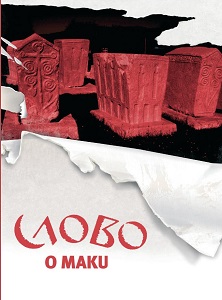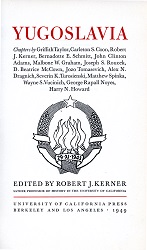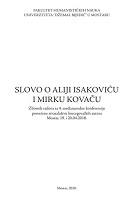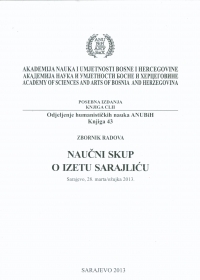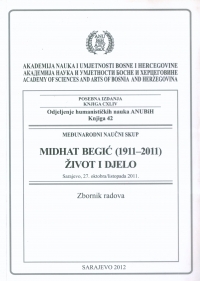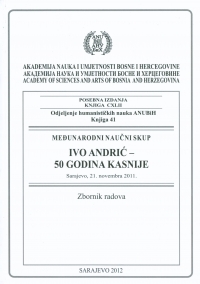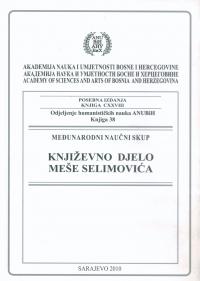Author(s): Almedina Čengić / Language(s): Bosnian
Publication Year: 0
The negation of consistent claims regarding the application of constant form and style in artistic expression is an indication of the initiative of individuals in creative literary circles, in which writers of new tendencies appear. In essence, a tendency is drawn, in which they try to “modernize” and place innovative attitudes, as models that should be written. The avant-garde approach, in the processing of the drama text, is a new way of defining and elaborating the leading problem, which has infiltrated into the contemporary expression of this type of literary creativity. Overcoming and opposing templates, within the framework of classic drama expression models, related to the stereotypical shaping of the composition, fabulas, character, is an indicator of these new tendencies in literary and artistic attitudes and the overall theater activity. In the center of interest of Alija Isaković, a playwright and theater worker, he is, above all, a man, an isolated individual, and a compassion for his fate, which he learned painfully, and he could not change it. The tragic determinant of his characters, who are the main protagonists of dramatic stories, is more pronounced, with the fact that it is about individuals who are experiencing this tragedy intensively by projecting it into reality. Fully aware, chaotic situations in which civilization falls deeper and deeper, which cause disrespect for any moral determinations, unjustified conflicts, accusations, violence and death; they try, by their own sacrifice and rebellion, to point out the devaluation of human values and violence against man and mankind. Alija Isaković (1932-1997.), in addition to the offered dramatic texts and critical reviews, significantly marked the modern drama in Bosnia and Herzegovina and confirmed his aspirations for the contemporary European literature of the second half of the 20th century with his overall work in the area of literary art. This work will be devoted to the analysis of two of his plays To (1979/81.) and Generalijum (1979/81), which are representative of this author, as one of the pioneers of the new approach to the processing of drama motives and writing dramatic texts.
More...
